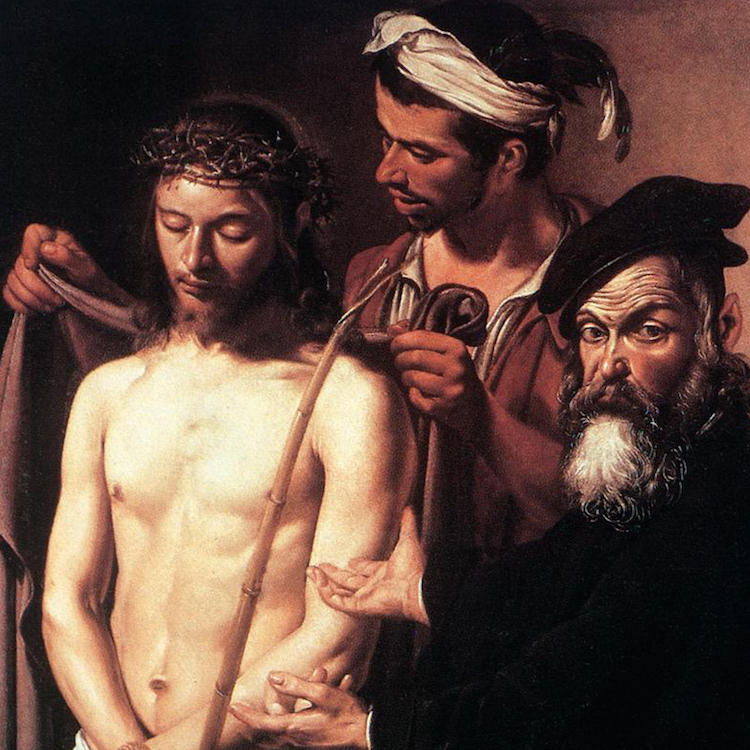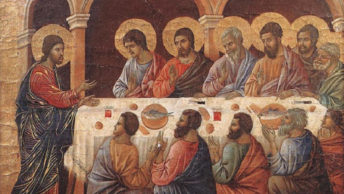Once there was a brilliant young man—we’ll call him Larry—who had just graduated with honors from the business program of a leading university. He married his college sweetheart and then, from the many job offers he received because of his excellent grades, accepted a position with a major corporation. Larry had a real knack for business, and so no one was surprised that he was the corporation’s top choice that year for their prestigious executive training program. After a few months of training, Larry’s boss took him to the national convention, where he’d get a first-hand look at life at the top, and network with important people who’d be able to help him advance his career. However, even though the business aspect was fascinating to him, Larry didn’t like everything he saw. More than a few of the executives were pompous, loud-mouthed, self-centered jerks, and most of them were heavy drinkers. Larry was urged to join in, and also told to select one of the women hired for the occasion and take her back to his room. To his boss’ shock and embarrassment, he flatly refused. Back home, the boss summoned Larry to his office, told him his stand-offish behavior didn’t fit in, but offered to overlook it if he’d promise it would never happen again. Larry couldn’t agree to that, and when the boss demanded “Just who do you think you are?” he simply answered, “I’m a Christian.” Soon afterwards, Larry was fired, and—despite his qualifications—it was over a year before he found a new job (William J. Bausch, Storytelling the Word, pp. 218-219).
No doubt with his wife’s support and encouragement, Larry was willing to take up his cross and follow Christ, even though there was a price to be paid. By doing so, he came not only to a deeper and more satisfying knowledge of the Lord, but also of himself. In the Gospel of Mark (8:27-35), Jesus asks us a very important question: “Who do you say that I am?” Our answer to this question helps determine our own personal identity, and our eternal destiny.
The idea that Almighty God would not only humble Himself to become a human being, but also allow Himself to suffer a painful and humiliating death, is shocking and simply incomprehensible to the world; it makes no sense, and many worldly people find this concept to be a stumbling block. After all, if Peter himself tried to talk Jesus out of accepting His mission, despite his intimate knowledge of the Lord, it’s no surprise our society rejects the ideas of self-surrender and sacrifice. Nevertheless, Jesus, fulfilling the prophecy of the suffering Messiah in Isaiah (50:5-9), chose to accept His mission, thereby making possible the salvation of all those who are willing to follow Him. This sort of discipleship, however, has to be sincere and wholehearted. St. James (2:14-18) describes this truth in very practical terms. Expressing warm wishes to suffering people, without trying to address their material needs, accomplishes nothing worthwhile. In the same way, claiming to follow Jesus without trying to live by His teachings and values is a complete waste of time. Genuine discipleship demands a true commitment.
A thirteen-year-old boy named Marco spent much of his time helping out at the little grocery store owned by his family. One day his dad asked him if he’d paint the electric sign over the main entrance, as it was becoming rusty and grimy. Marco agreed to do so, even though he was actually afraid of heights and rather uncomfortable with the idea of climbing up almost twenty feet above the ground. Once up on the ladder he discovered there were little blue light bulbs around the edge of the sign that had to be removed before he could start painting, so he went down, got a bucket, climbed back up the ladder, and carefully removed all the bulbs. However, on the way down the ladder the bucket slipped from his hands and crashed on the sidewalk below, breaking every single bulb. Marco dreaded telling his dad what had happened, expecting him to react with anger or at the very least with disappointment, but when he did, the father had only one question: “Are you hurt?” When Marco said no, his dad continued, “Then I’m not worried. I can replace the light bulbs, but I can’t replace my son” (Bausch, op. cit., p. 219). Afterwards, while cleaning up the mess and then painting the sign, Marco kept telling himself, “Wow—my dad really loves me!” This lesson stayed with him the rest of his life.
When someone else expresses genuine love for us, we grow in self-esteem and self-acceptance, and we become spiritually and emotionally stronger, and more capable of letting God’s love flow through us. This is what Marco’s dad did for his son, and this is what we’re called to do for others. In effect, Marco asked his father, “Who do you say that I am?” His dad didn’t answer “You’re someone who’s careless, incompetent, or clumsy”; no, he said, in effect, “You’re my son—and I really love you and care about your well-being.” These are powerful words, and our Heavenly Father constantly speaks them to us—and Jesus Christ is the living proof that God really means what He says.
Love is wonderful and life-giving, but it often involves pain and sacrifice. That’s why Jesus stated, “Whoever wishes to come after Me must deny himself, take up his cross, and follow Me.” If Jesus really is the Lord of our lives, we will try to do this—and in the process we’ll deepen our capacity to be filled with love and grace, and discover and develop virtues and talents that would otherwise have remained unknown and unused, and experience the truth that God’s peace can fill us and sustain us, even in the midst of failure and rejection, loneliness and sorrow.
The world tries to tempt us to compromise our beliefs and values, to take the easy way out, and to set aside or at least water down our faith when it becomes too difficult or inconvenient. Following the example of Jesus, we must respond to these temptations by saying, “Get behind me, Satan.” Our Lord wants us to remain rooted in the truth and to see everything not in worldly terms, but through the eyes of faith—and His grace is always available to help us in our efforts to live in this manner. Larry had to pay a price for holding onto his moral values, but he was quite willing to do so. Marco attempted something difficult because his dad asked him to, and in failing at first, he came to a deeper awareness of his father’s love. In the same way, Jesus wants us to take the risk of truly living as His disciples—and He promises that doing so will lead us on a journey of self-discovery that culminates in an experience of everlasting freedom, joy, and peace.








